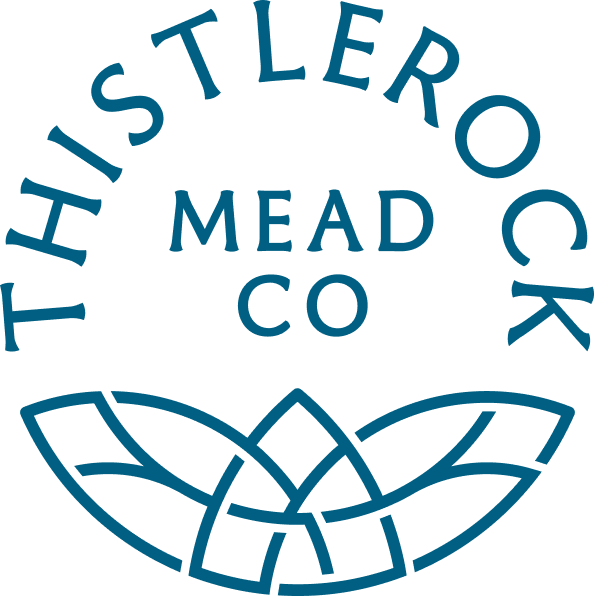Our WhY

“The cosmos is within us. We are made of star-stuff.”
Carl Sagan’s now famous quote is a reminder that we, as human beings, are not separate from nature but are very much a part of it. Yet over the course of recent human development, particularly in the last hundred years of industrialization, we seem to have forgotten this. Greed and over consumption, fueled by a misguided economist’s assumptions that the purpose of business is to maximize profits, has led us astray. This separation between humankind and the natural world has been to our detriment, with alarming consequences.
In the most comprehensive index to date, tracking the health of nature over 50 years, the World Wildlife Fund and the Zoological Society of London found an average of 69% decline in wildlife populations around the world between 1970 and 2018. In 2020, we overused our planet’s resources by at least 75%, or the equivalent to living off 1.75 Earths, according to the Global Footprint Network. Human life depends on a thriving biosphere here on Earth. But we cannot reduce the loss of biodiversity without keeping global warming below 1.5°C.
There is no way humanity can achieve this goal if we leave this up to a handful of governments and large corporations. We need all hands on deck including this ragtag group of misfits, meadmakers, beekeepers, and farmers. We share a belief that the purpose of business is not to extract from the world, but to profit the world, rendering business in service to humanity and the miraculous and beautiful planet we call home. This is why we started Thistlerock Mead Company: to restore balance to the human-nature relationship and to pioneer a new way of building a company.
At the heart of our mission is the Scots Gaelic concept of Doìgh Nàdair (pronounced doe na dare) which translates to the “Path,” “Dao,” or “Way” (doìgh) of “Nature” (nàdair). There is no manual for what it means to follow this path, nevermind a roadmap for how to build a company with this as a north star. So we’ve given ourselves the challenge of figuring this out, and hopefully, using our lessons, successes, and failures along the way we can help others–like you– join a global movement of companies, people, and organizations that puts nature first. This is The Way of Nature™.

The Thistlerock Mead Company Model:
Learn how flowers, mead, and honey work together in harmony in the Thistlerock’s impact model.
The Thistlerock Mead Company Model:
Learn how flowers, mead, and honey work together in harmony in the Thistlerock’s impact model.
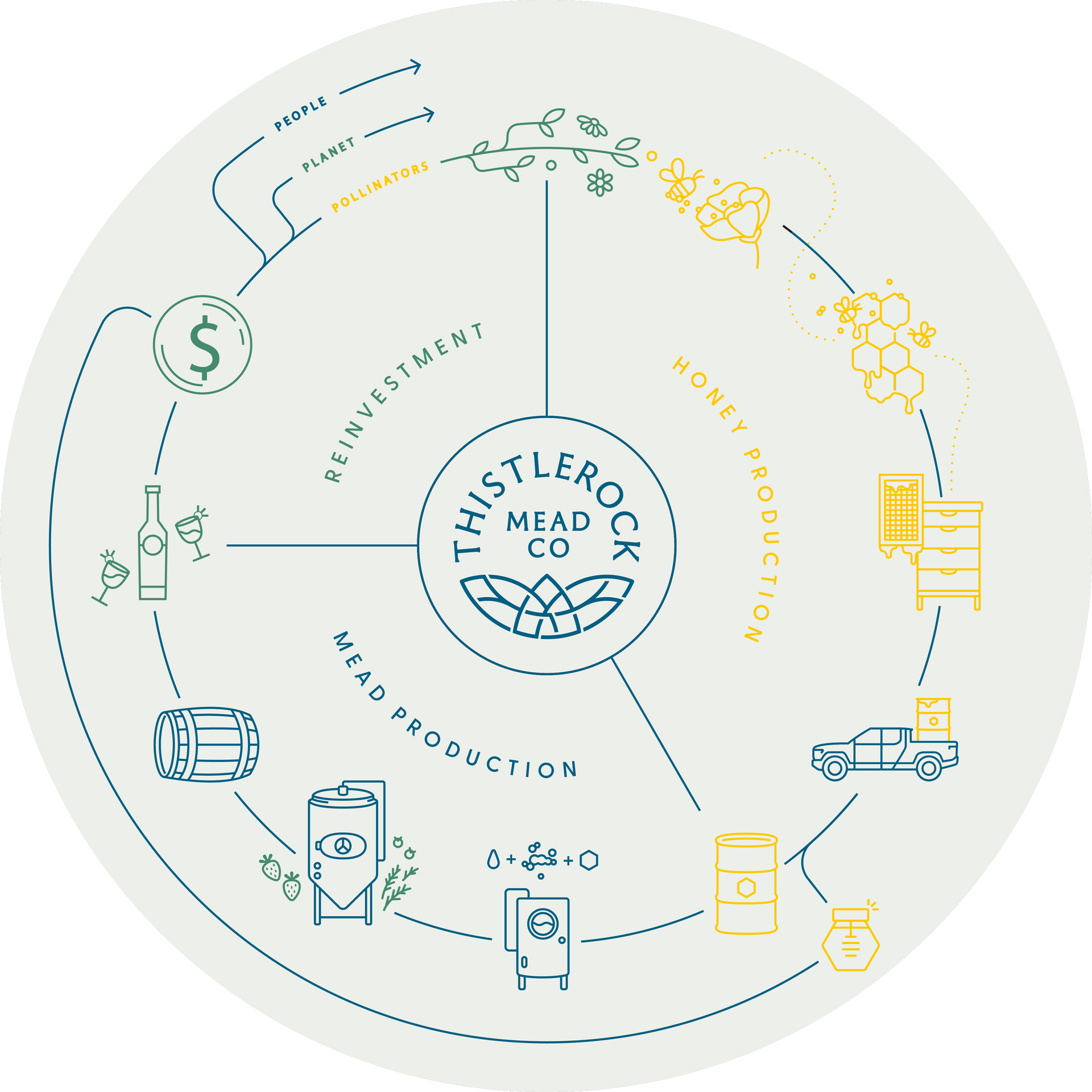

FLOWER
At Thistlerock, the magic starts with the land. We are restoring our soil using regenerative agricultural practices and chemical-free flower farming, and we sequester carbon which helps combat climate change – all while creating ideal habitats for honeybees and native pollinators.
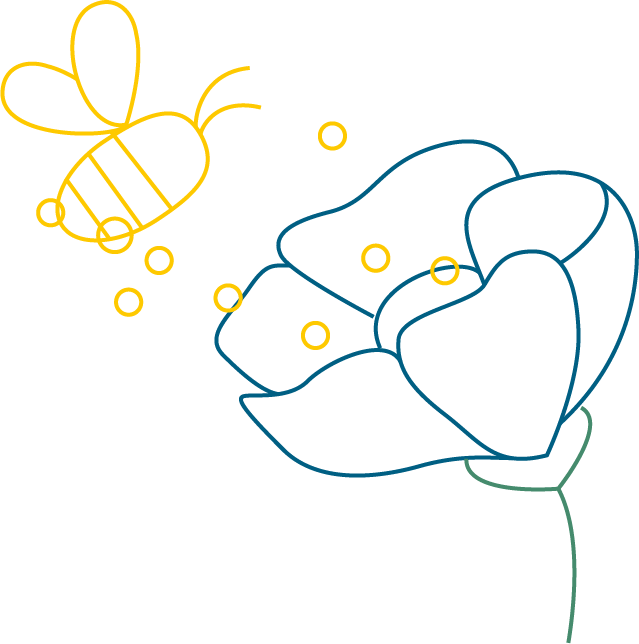
POLLINATION
Honeybees and native pollinators – including over 400 species of native Virginia bees, hummingbirds, butterflies, and moths– sustain our ecosystems and produce natural resources by helping plants reproduce.
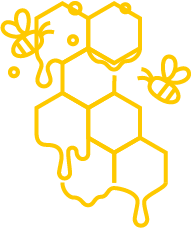
HONEY
Our honeybees, apis mellifera, collect pollen and nectar as food for their colonies. It is this nectar that becomes honey, which workers store in the cells of their honeycomb. Each bee produces the equivalent of a half of a teaspoon of honey over the course of its life.

BEEKEEPING
Aligned with our regenerative agriculture approach, Thistlerock uses only natural interventions and compounds in our beekeeping, focusing on measurably improving the health and resilience of honeybees. In turn, we generate positive interactions between honeybees and their surrounding ecosystems – and support beekeeper livelihood.

COLLECTION
We collect honey from our hives conscientiously, being sure to leave our colonies with an abundance of honey to get them through each winter. Though Thistlerock currently has over 55 hives under management and is planning to grow our own hive operation to 200 by 2025, we source additional honeys from veteran-, women-, and BIPOC-beekeepers from around the world who specialize in unique, monofloral honey varietals.

SEGMENTATION
Once collected, we separate our honey into that which will be used for mead production, and that which will be filtered separately before it is bottled and sold to guests at our Tavern & Honey Library and our online store (coming soon!).

PRIMARY FERMENTATION
The first stage of meadmaking is mixing honey, water, yeast, nutrients and proper environment together to create our base wine, or mead. The mead that comes out of the primary fermentation stage is also referred to as traditional mead, or “show” mead, because of how well it showcases the honey profile. When grains and hops are added into the primary fermentation, this mead is called a Braggot and very similar to an Ale.
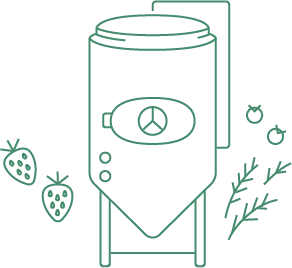
POLLINATION
Honeybees and native pollinators – including over 400 species of native Virginia bees, hummingbirds, butterflies, and moths– sustain our ecosystems and produce natural resources by helping plants reproduce.

HONEY
Our honeybees, apis mellifera, collect pollen and nectar as food for their colonies. It is this nectar that becomes honey, which workers store in the cells of their honeycomb. Each bee produces the equivalent of a half of a teaspoon of honey over the course of its life.

BEEKEEPING
Aligned with our regenerative agriculture approach, Thistlerock uses only natural interventions and compounds in our beekeeping, focusing on measurably improving the health and resilience of honeybees. In turn, we generate positive interactions between honeybees and their surrounding ecosystems – and support beekeeper livelihood.

BOTTLING
Once our meads have completed their fermentation, aging, filtering and finning process, they are then put into recycled bottles or reusable kegs that adhere to our high standards for sustainability. For our lower ABV meads, also known as “short” or session meads, we add light carbonation at this stage to lift the meads and make them Petulant and lightly carbonated.

Reinvestment
We make meads and honeys with a mission. Half of all profits at Thistlerock Mead Company are reinvested to support pollinators, biodiversity and habitat conservation, and nature-based livelihoods.
